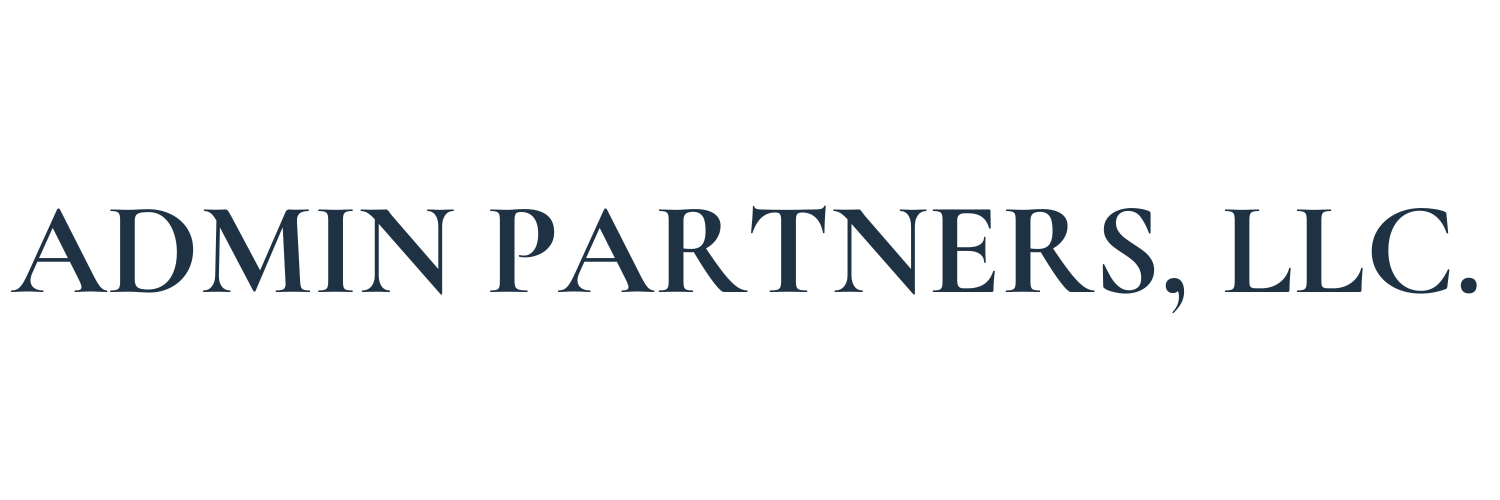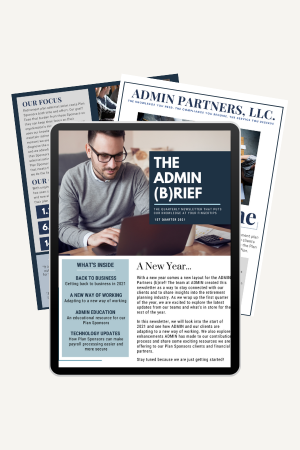
By now you know that ADMIN Partners is an expert when it comes to retirement planning. This is especially true for plans that fall into our niche: the tax-exempt and government marketplace. In this arena of retirement planning, we often work with employers who are in the process of establishing a retirement plan for their organization for the first time. These are commonly referred to as ‘start-up’ plans and while they are a familiar territory for ADMIN’s team of experts, they often come with less-experienced employees who have a number of questions.
With this in mind, we have laid out the top three things that employers should consider when establishing a 403(b) plan.
WHY OFFER A 403(b) PLAN?
Like any retirement plan, a 403(b) plan is a great way to provide an added benefit to your employees. This is especially the case for 403(b) eligible employers like non-profits and religious organizations where budgets can be tight and salaries are often lower. A 403(b) allows employees of an organization to save on a voluntary basis towards their future. 403(b) plans also allow the employer the option of offering a match which will boost the savings for those participating in the plan. To learn more about why employees should be utilizing their employer-sponsored retirement plan, click here.
WHAT IS NEEDED TO START?
Once you have determined that you want to establish a 403(b), there are two things an employer should be thinking about: investments and administration.
INVESTMENTS
Not all investment firms support 403(b) plans, but that doesn’t mean employers using this plan type are without options. In fact, ADMIN Partners works with over 60 vendors who provide an investment solution for 403(b) plans. With this amount of choice, it is important that an employer consider what solution will work best for them and the needs of their participants. Do you want a financial advisor who can be on-site to help eligible employees enroll in the plan? Would you prefer the investment line-up to be more self-directed? Are you looking for the simplicity of a single provider or does it benefit your organization to use a multi-vendor arrangement that lends to choice? Learn more about investment options here.
ADMINISTRATION
Once an employer has decided on the investment arrangement that best suits their business, they need to consider the administration that accompanies a retirement plan. Retirement plans come with a considerable amount of responsibility for the Plan Sponsor. From designing a plan document to establishing Information Sharing Agreements with vendors, there are a number of administrative duties that need to be assigned. This is where the support of a TPA (like ADMIN Partners) is invaluable.
HOW TO MAINTAIN A PLAN?
Retirement plans are not a one-stop shop. They are a living and breathing part of a business and need to be maintained year over year. Whether your plan has the complexity of an ERISA design or a simpler composition, there are many factors to consider on an on-going basis:
Document Maintenance (including IRS & plan requested amendments)
Plan Compliance
Disbursement Requests (loans, distributions, hardships, etc…)
Payroll Functions
ERISA Year End Work (including nondiscrimination testing and 5500 filing)
Audit Procedures
With all of these requirements, it is important to define the roles and responsibilities of the Plan. In fact, plan maintenance is another example of why it is important to retain a TPA to help an employer manage the plan’s administration. A full-service TPA like ADMIN will support the Plan Sponsor and ease the daily administrative burdens that come with a 403(b). We use our expertise and our experience to ensure your plan is up-to-date and always in compliance.
While this blog post specifically addresses things to consider when establishing a 403(b) Plan, the same framework can also be used when looking at other retirement plans (i.e. 457(b), 401(a) and even 401(k) plans). If you have any questions regarding the set-up for any type of retirement plan, contact our team of experts at 877-484-4400.


